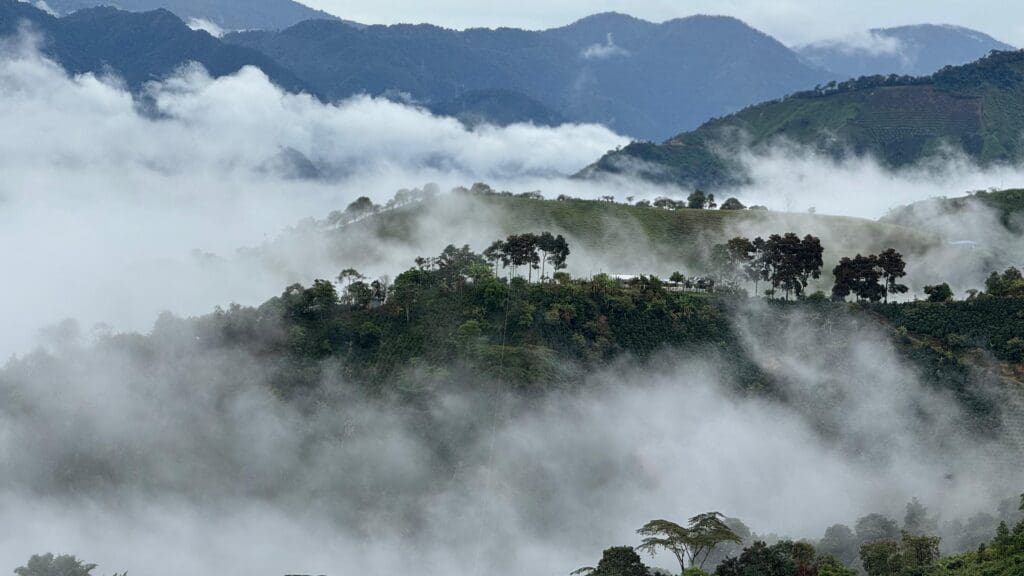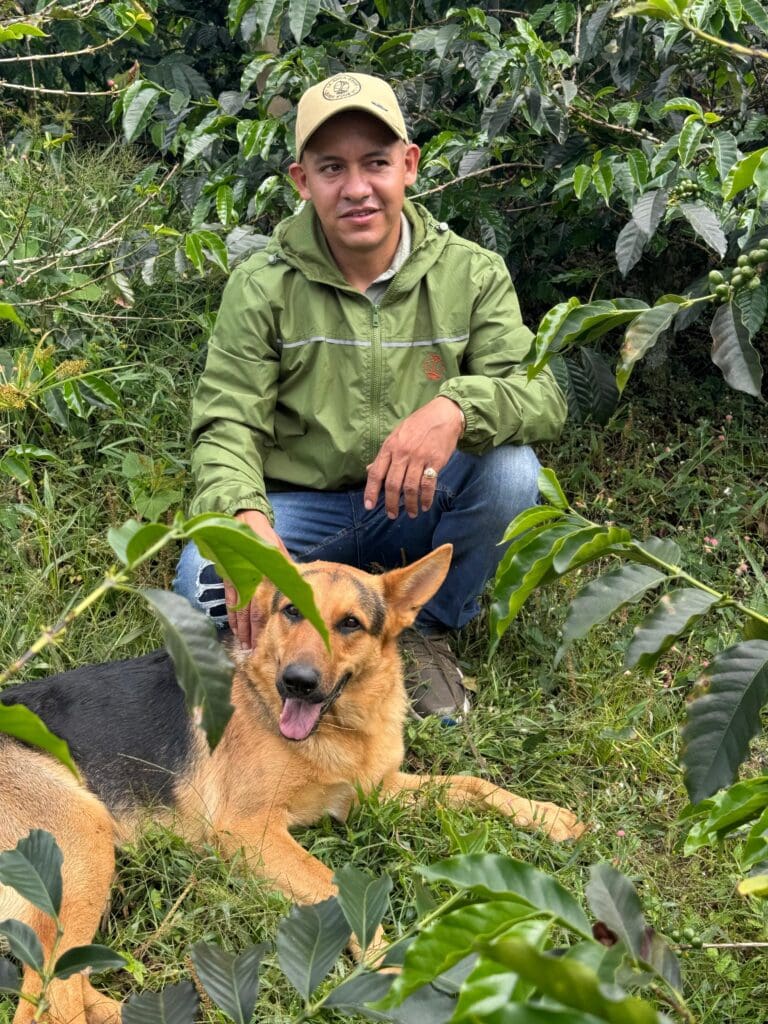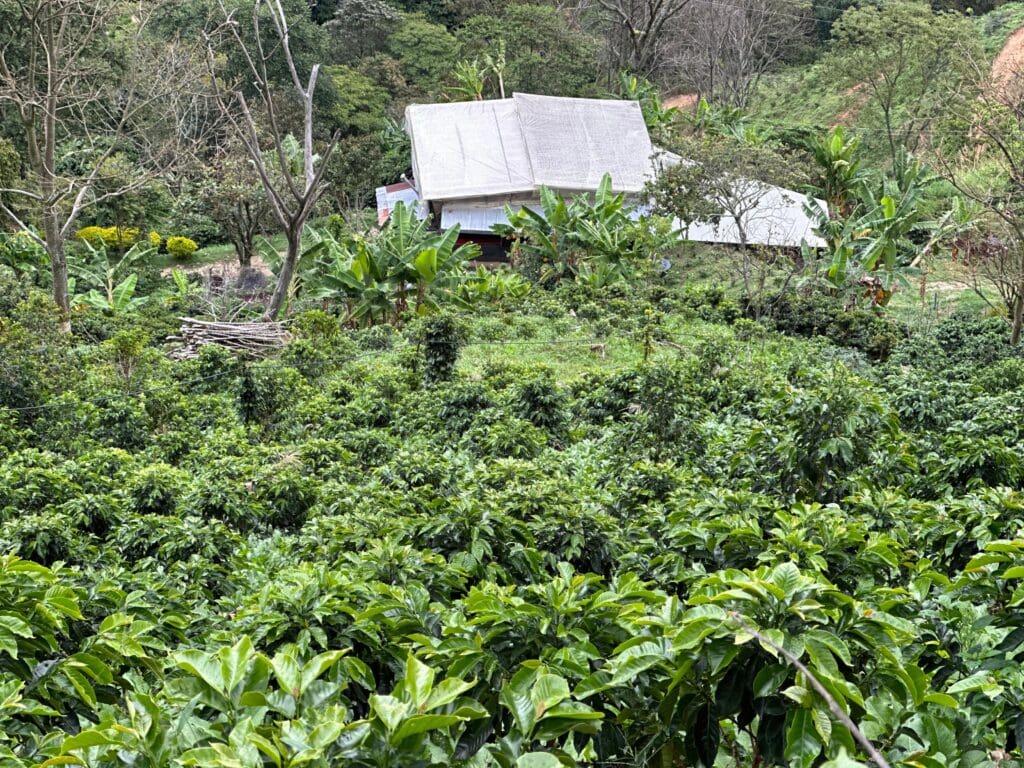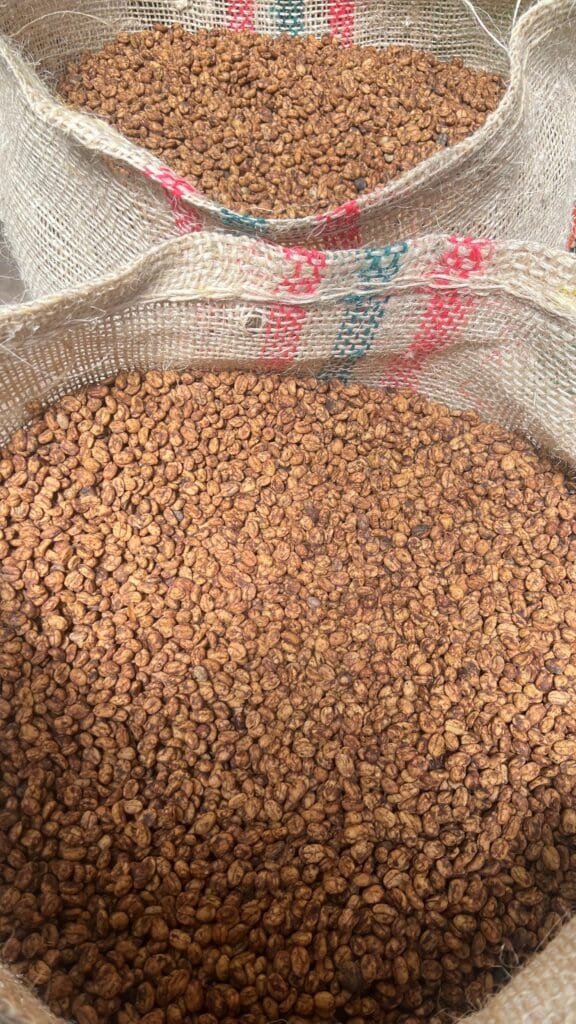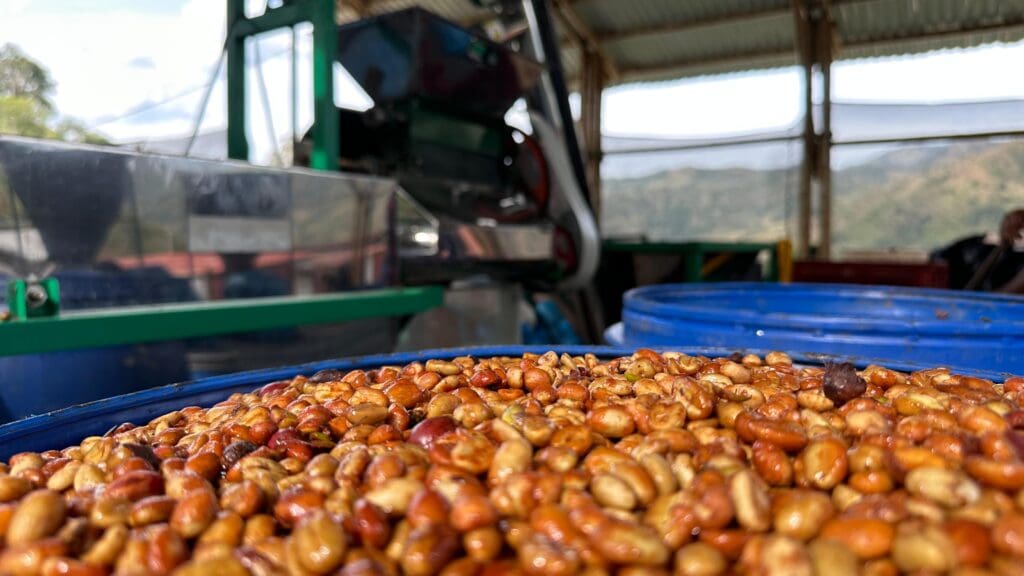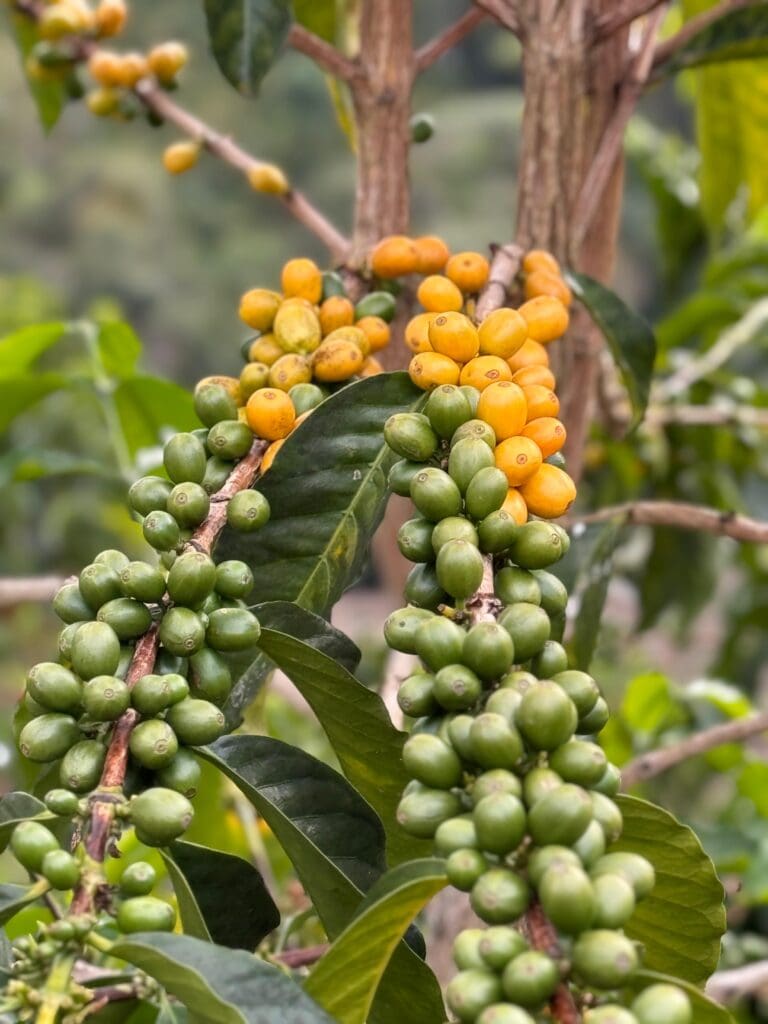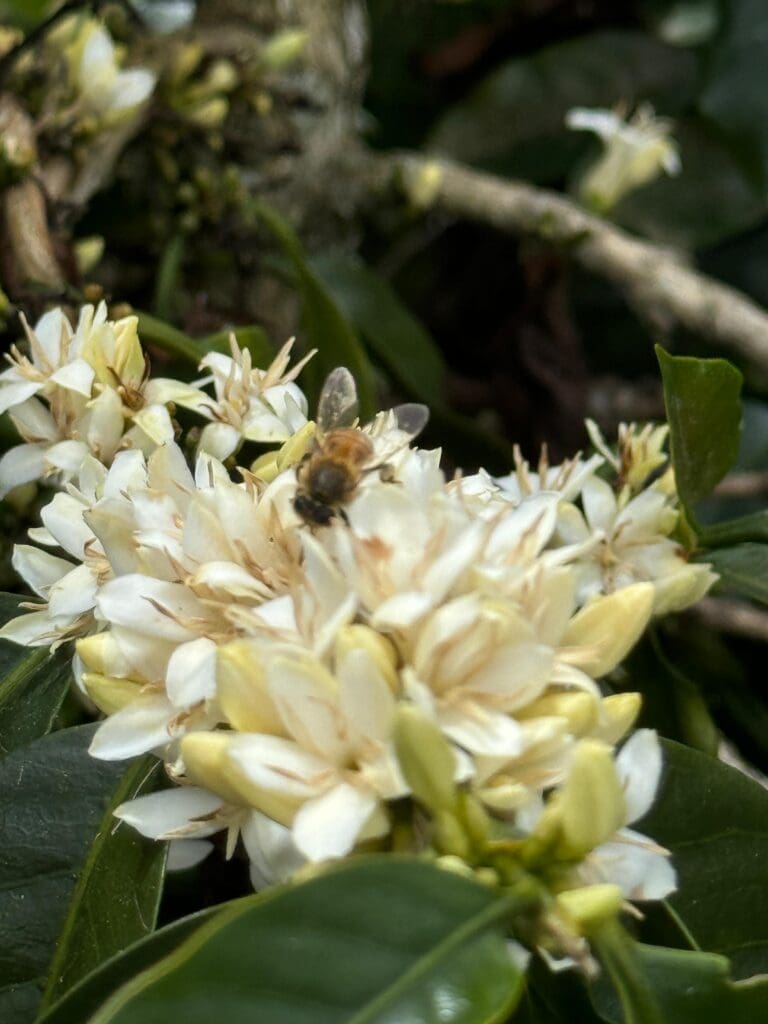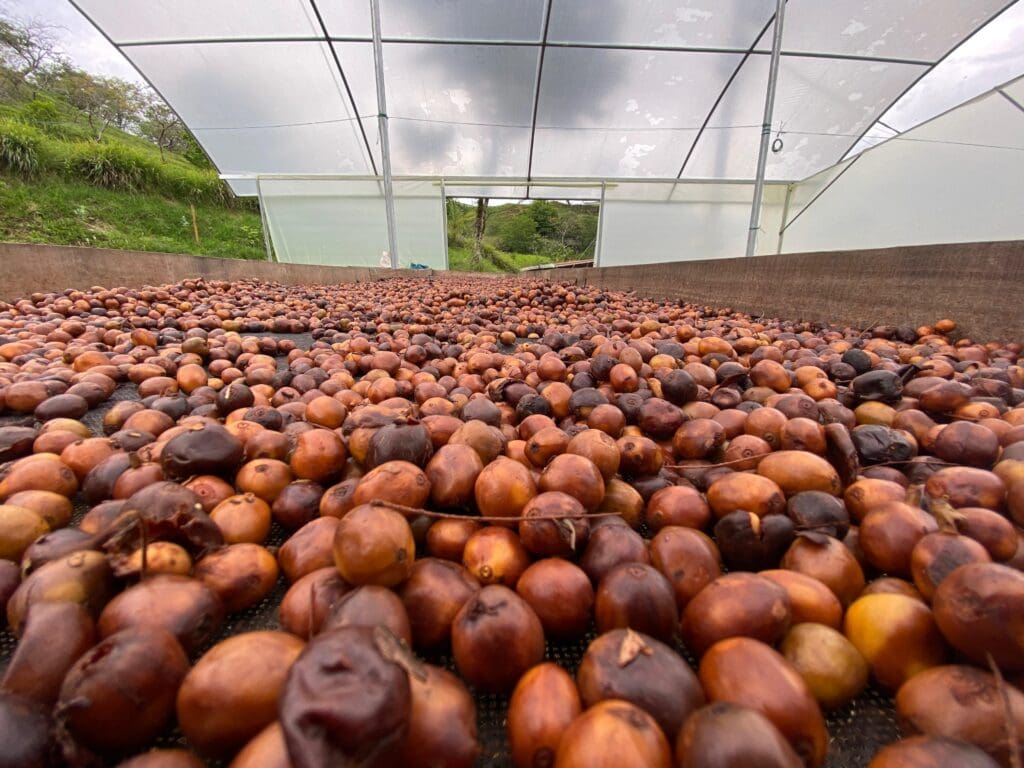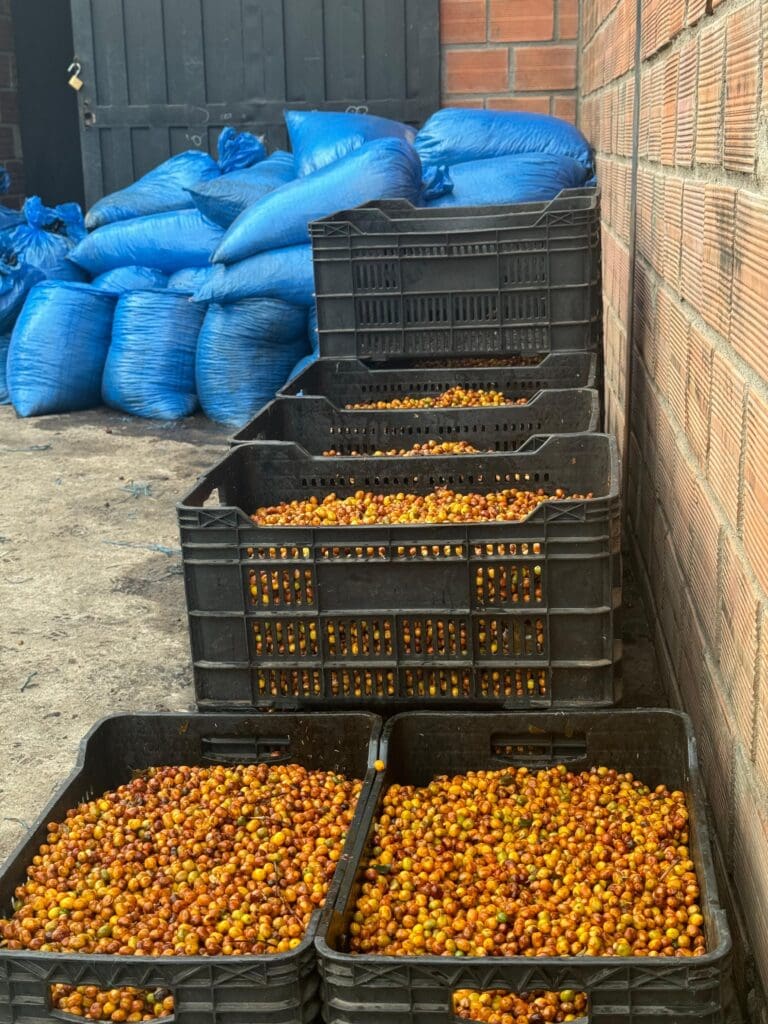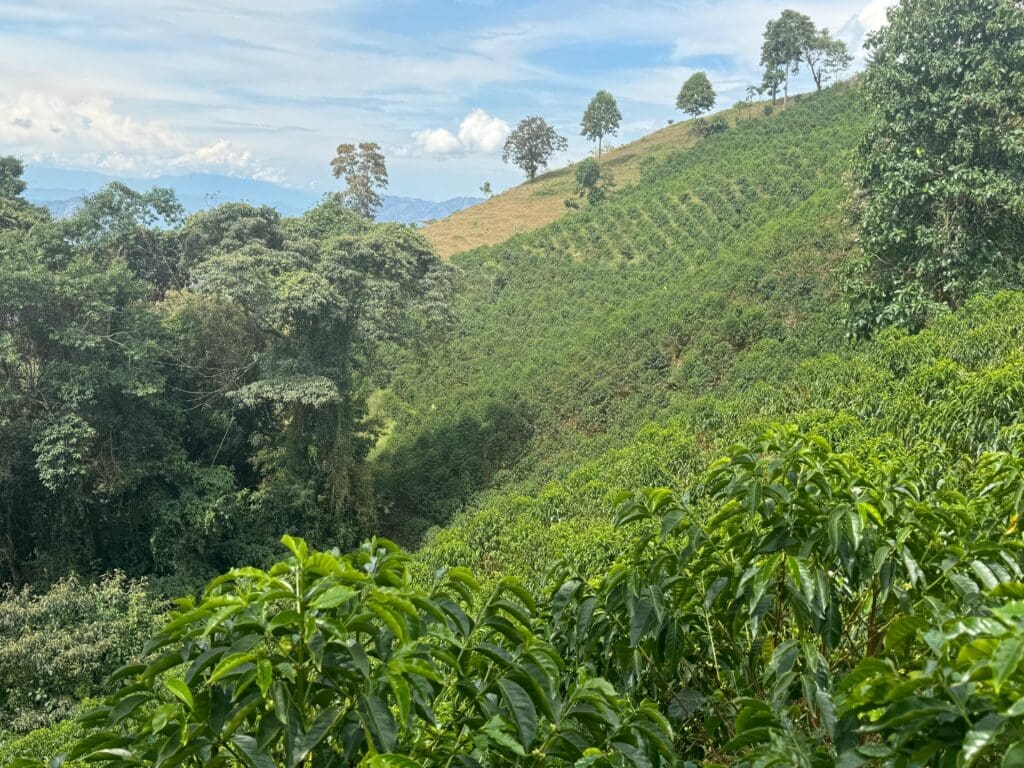Jorge Elías Rojas Vásquez was born into a coffee-growing family in La Armenia, Planadas, Tolima. At just five years old, he lost his father, and from an early age, the rhythm of his life was set by the cycles of the coffee harvest. By the time he was 12, he had taken responsibility for the family farm, learning firsthand the challenges and rewards of coffee production.
In 2010, Jorge took a significant step forward, acquiring La Roca Estate—a 4.5-hectare farm perched at 1,857 meters above sea level—where he committed himself to producing exceptional specialty coffee. Over the years, he has expanded his vision, acquiring farms like La Gloria, where his sister, Angélica Rojas, plays a key role in daily operations.
Jorge is constantly refining his craft, earning certifications such as Q Processing Level 1 from the Coffee Quality Institute and training with industry experts. His dedication has led him to international competitions, including the 2023 World Coffee Challenge in Madrid, where he won Best Honey-Processed Arabica. His passion has also taken him as far as China, forging new connections to expand the presence of Colombian specialty coffee worldwide.
Beyond his own farms, Jorge is a leader within his community, sharing knowledge with fellow producers through ASOPEP. The association’s central processing facility, equipped with state-of-the-art technology, ensures meticulous quality control at every stage. By roasting and marketing his coffee under the La Roca Estate brand, Jorge preserves the integrity of his work from farm to cup, transforming his estate into a model of sustainability and excellence.
This lot of Typica underwent honey processing. The cherries are harvested at peak ripeness and first undergo a 24-hour fermentation in cherry. After being depulped, fermentation continues for another 60 hours, allowing the flavors to develop further. The coffee then moves to the drying stage, where it is closely monitored. Once it reaches 15% moisture, it is given a 48-hour resting period before completing the drying process. Finally, it is stored in GrainPro bags to preserve its quality.
This coffee was picked by Angélica Rojas, Jorge’s sister and processed in La Roca State processing mill.



